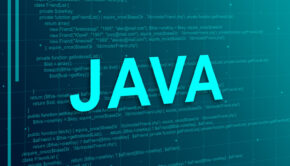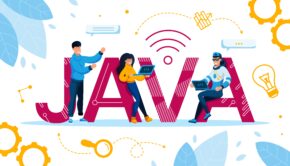10 Things Every IT Student Should Know
If you want to enter the world of information technology, you probably wondered what knowledge and skills a future programmer should have. Almost every one of us today, thanks to the Internet, has unlimited access to information – so what should an IT student know and be able to do to ensure a successful future in this area? Below we have provided a list of things an IT student should know – these points will be a great starting point for any aspiring professional.
Algorithms And Data Structure
If you want to become a programmer, then you need to have a clear understanding of the data structure and algorithms – you cannot do without them. This topic is one of the most pop-up topics in a tech interview because without knowing the underlying data structures, it is almost impossible to write a real application. This is why any IT student should invest enough time and effort to learn the basics of data structure and basic algorithms. In an educational institution, teachers may pay little attention to this – everything depends on the direction you choose. If you have difficulty understanding this discipline, you can always use the use the programming homework help from experts with years of experience in the IT field.
Source Code Management
Source control is used to improve code experience. Fortunately, Git and Github have contributed to the active development of this concept, which is why today, about 70% of organizations use Git. So if you want to be a great programmer, you should be familiar with version control tools like Git and SVN. Based on this, you can start the study of this topic with Git.
It would help if you also took the study of this topic with all due attention. To be successful, you will need to be well-versed in even such advanced concepts like branching and merging and working perfectly with the tool itself, both from the command line and the GUI.
Text Editors
Many text editors have a huge selection, up to the most advanced versions such as Codelobster, Sublime and NotePad ++…, which provide almost the same functionality as an IDE. To work as efficiently as possible with text editors, learn hotkeys – in the long run, it will save you a sufficient amount of time and effort in future work.
Integrated Development Environment
A modern Integrated Development Environment (IDE) is one of the essential tools every developer should own. For those who work with C, C ++, and C # – the choice is obvious – Visual Studio. We would recommend Jupyter Notebook for Python developers – this IDE is gaining more and more impressive functionality every day. Java programmers can choose from three of the most commonly used options: Eclipse, NetBeans, and IntelliJ IDEA. Note that Java assignments are the most common in educational institutions, so do not skip the lectures, as this will be an excellent base for future projects.
Databases & SQL
SQL is the foundation for all future programmers. Given that databases are ubiquitous, the programmer must know basic database concepts such as normalizing and designing tables using SQL.
There are many different databases, but it is enough to be familiar and know how to work with at least one of them to work. You should know how to insert, update and delete data, and write SQL queries to get it.
If your knowledge in databases goes beyond just basic, then this can become your competitive advantage. But, if not, you can always get them in one of the many courses, such as The Complete SQL BootCamp.
UNIX or Linux
UNIX, like many other programming tools, has passed the test of time. UNIX has been around for over 20 years, and experts are confident that it will be relevant for another couple of decades. Considering that many programmers need to work on Linux at some point, a good knowledge of the Linux command line is not at all superfluous. On the contrary, it allows you to work much more efficiently. It makes it easier to find the files you want, monitor system status, check CPU and memory usage, and perform basic tasks and exceptional tasks.
Microsoft Excel
Excel is a basic tool that every programmer, application or software developer, digital project manager, traders, or programming executive should be familiar with. Based on the features this program provides, it is much more advanced than just spreadsheet software. For example, you can use it to perform multi-level analysis of huge blocks of data.
The scope of this tool is extremely wide, so we strongly advise any information technology student to study Excel in as much detail as possible. You should master essential functions like searching, sorting, setting filters and VLOOKUP, since working with this tool is not about mindlessly copying and adding data. Also, it wouldn’t hurt to figure out how Google Sheets works. Despite the fact that the functionality of this service seems to be more primitive than Excel, thanks to its free support for Apps Script language, Google Sheets becomes a very powerful application in the hands of any competent student. The main thing is to know how to work with this tool.
Programming Languages
If you want to become a first-class expert in the field of programming, you must know at least a basic level of programming languages: JavaScript, Java, C ++, Python. You can choose any programming language. However, we would advise you to learn at least Java. The language is fairly easy to learn, so that it can be an excellent choice for beginners. Even though this language is straightforward to learn, it is quite a powerful programming tool that allows you to solve problems of any complexity.
Computer Networking Fundamentals
We live in a modern world where everything is interconnected and impossible to imagine without the Internet. Wherever you are, you can see computer networks everywhere. At home, we use Wi-Fi on a variety of devices. Likewise, the local area networks (LANs) are ubiquitous in educational institutions and offices.
Most applications that have already been written or are about to be created are also not stand-alone. Many applications are client/server. In them, the request is transmitted via the network to the server. This allows you to give users access to the application from anywhere.
Scripting Languages
In the eighth paragraph of this list, programming languages were mentioned, at least one of which is worth mastering. So, it would seem, why repeat and advise you to learn a scripting language as well?
Let’s say several programming languages are suitable for both object-oriented programming and scripting. Python is such a language. Therefore, special emphasis was placed on learning this particular programming language. On the other hand, if you are familiar with C / C ++ or Java and work with these languages, you are unlikely to perform some tasks as quickly and efficiently as a Python or Perl developer can.
The scripting language allows you to create tools that solve common problems. Thus, if you know the essence of language scripts, such as Python, you will be able to shift many of the day-to-day tasks onto the shoulders of the mechanism. As a result, you will have more time to complete other tasks.
Cover Photo by JESHOOTS.COM on Unsplash
















